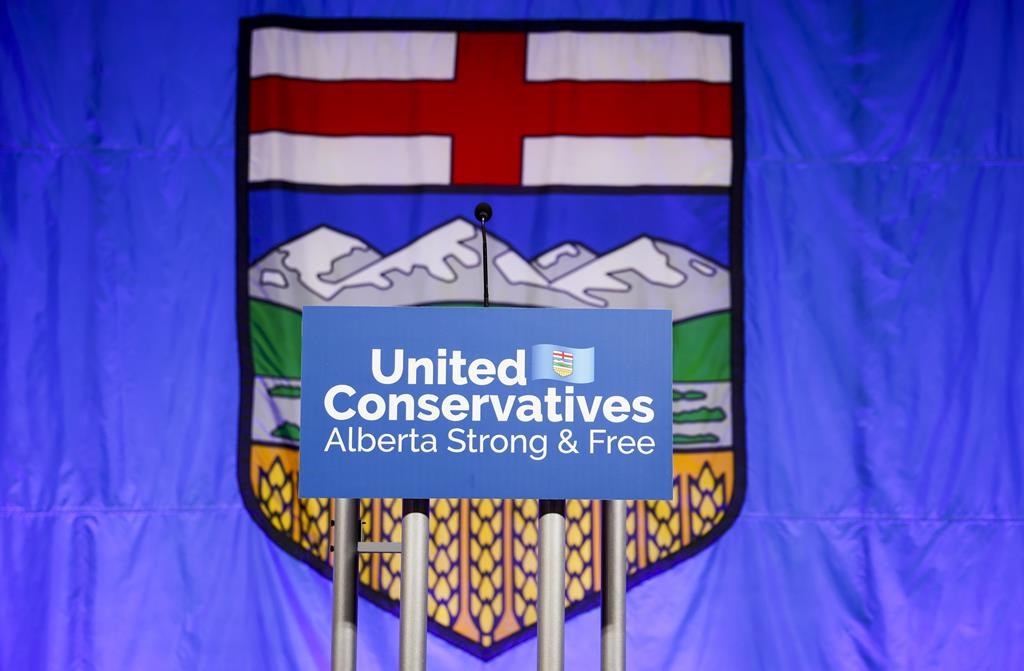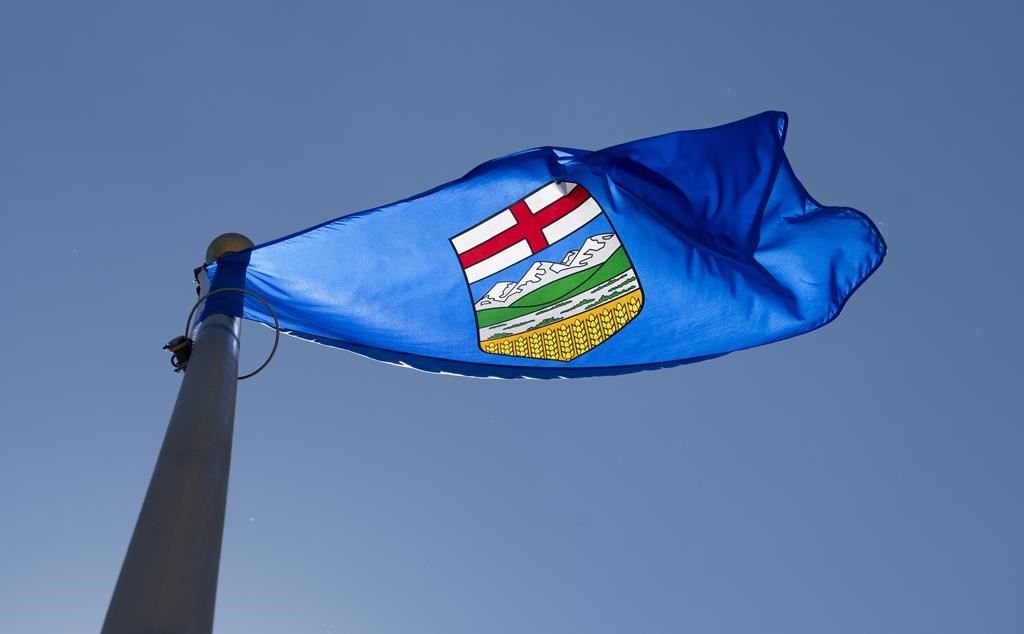Alberta passes sovereignty act, but first strips out sweeping powers to cabinet
Posted December 8, 2022 7:34 am.
Last Updated December 8, 2022 8:13 pm.
Alberta’s legislature passed Premier Danielle Smith’s controversial sovereignty act overnight — but not before first stripping out the provision that granted Smith’s cabinet the power to bypass the legislature and rewrite laws as it saw fit.
Smith’s United Conservative caucus used its majority to pass an amendment affirming that the Alberta legislature still has the last word on lawmaking.
The bill then moved directly to the third and final reading on the bill and was approved around 1 a.m. Thursday, with government members standing to applaud after it cleared the final legislative hurdle.
The UCP passed motions at the final three stages of the bill to limit debate.
The final vote was 27-7 split along party lines: Smith’s UCP voting for it and the Opposition NDP against.
Smith, speaking to the bill in third reading, said it is time to reset the relationship with Prime Minister Justin Trudeau’s government.
Related articles:
-
Alberta premier rejects accusations her sovereignty bill is undemocratic power grab
-
Alberta, Saskatchewan chiefs call for sovereignty acts to be withdrawn
-
Premier Danielle Smith introduces Alberta sovereignty bill to push back against Ottawa
“It’s not like Ottawa is a national government,” said Smith.
“The way our country works is that we are a federation of sovereign, independent jurisdictions. They are one of those signatories to the Constitution and the rest of us, as signatories to the Constitution, have a right to exercise our sovereign powers in our own areas of jurisdiction.”
Immediately after the vote, NDP Leader Rachel Notley tweeted, “for the record, if we form government, we will move to repeal this horrible, anti-democratic legislation.”
“We will actually work with businesses, investors, workers, Indigenous leaders, young people and more on a credible path to a resilient economic filled with good-paying jobs, now and for generations to come,” Notley continued in her Twitter thread, encouraging Albertans to “keep making your voices heard.”
We will actually work with businesses, investors, workers, Indigenous leaders, young people and more on a credible path to a resilient economic filled with good-paying jobs, now and for generations to come. #ableg #yyc #yeg
— Rachel Notley (@RachelNotley) December 8, 2022
Reactions on sovereignty act passing
Prior to the overnight vote, various First Nations chiefs in Alberta joined calls with their counterparts in Saskatchewan to urge their provinces to toss out proposed legislation, which they referred to as inherently undemocratic, unconstitutional, and infringing on Indigenous rights.
“We are not looking for change or amendments to the bill. We want it withdrawn,” Chief Tony Alexis said Wednesday on behalf of Treaty 6.
Alexis, of the Alexis Nakota Sioux Nation northwest of Edmonton, said there has been no consultation or dialogue with First Nations around the Alberta bill.
Related articles:
-
‘Very worrisome’: Reaction to Alberta’s sovereignty act bill pours in
-
Critics, supporters of Alberta sovereignty act protest outside legislature
Alexis said the bill is harmful to Albertans and Canadians. He said it infringes on treaty rights and could set a harmful precedent.
“We are deeply concerned that, if passed, it would have a domino effect across Canada,” Alexis said. “And what would keep other provinces from following suit and, ultimately, what will that mean for treaty rights across Canada?”
Duane Bratt, political scientist at Mount Royal University, says it’s a surprise to see how “rapid” the bill was passed.
“This is, whether you liked the bill or you don’t like the bill, is one of the most radical bills that we have seen since the 1930s,” Bratt said.
“And to do it within a week, time allocation was attached to quicken the process … there has been much greater deliberation on bills with much less magnitude.”
Smith’s claim that Ottawa is not a national government is a misunderstanding of what the federal government is, according to Bratt, saying, “It’s just absolutely factually wrong.”
“It is a government made up of elected representatives from right across the country,” Bratt said. “If you don’t like the government, that’s one thing. But to claim that it lacks legitimacy as a national government. That’s just completely false.”
He says the bill’s passing indicates a trend in focus for the Smith government.
“This is the number one priority of the government. It’s not health care. It’s not affordability. It is the sovereignty act,” Bratt.
Lori Williams, also with Mount Royal University, says the same thing.
“The contrast between what front of mind was, frankly, a crisis that is concerning most Albertans today, and the fact that the government is primarily concerned with this sovereignty act, that’s problematic in itself,” Williams said.
“The fact that less than a third of Albertans actually support this act and would much rather see the government focus on priorities like affordability, healthcare and education, that certainly sends a signal that this government is out of touch with the majority of Albertans. And that’s not a good place to be when you’re headed for an election in six months.”








